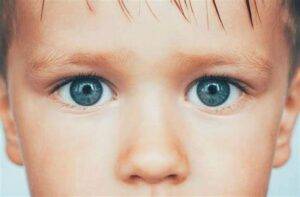Table of Contents
Hey, Let’s Talk About Dry Eyes!
Ever had that scratchy, stinging feeling in your eyes? Yeah, it’s more than just annoying—it could be a sign of something bigger. We’re diving into the world of xerophthalmia, a fancy term for dry eyes, and how a lack of vitamin A might be the culprit.
So, What’s the Deal with Xerophthalmia?
Dry eyes can be a real pain, right? But did you know it’s not always about staring at your computer screen for too long? Sometimes, it’s about missing out on essential nutrients like vitamin A. This vitamin is a big deal when it comes to keeping your eyes moist and healthy.
Vitamin A: Your Eyes’ Secret Weapon
Hold on, let’s geek out for a second. Vitamin A is super important for your retina—that’s the part of your eye that helps you see in different light conditions. Without enough of it, you could end up with night blindness or even lose your sight altogether. Scary, huh?
Connecting the Dots: Vitamin A and Dry Eyes
So, how does a lack of vitamin A lead to dry eyes? Simple. Your eyes need this vitamin to produce tears and mucus. Without it, things start to dry up, and not in a good way. Long-term deficiency can even damage your cornea. Yikes!
How to Know if You’re Lacking (And What to Do About It)
Wondering if you’re low on vitamin A? Here’s the game plan:
- Get Your Eyes Checked: A quick visit to the eye doctor can tell you a lot.
- Blood Tests: Yep, a small prick can reveal your vitamin A levels.
- Eat Better: Think carrots, sweet potatoes, and leafy greens. Your eyes will thank you.
Treatment 101: Fixing the Issue
If you find out you’re low on vitamin A, don’t panic. Here’s what you can do:
- Pop Some Supplements: But only if your doc says it’s okay.
- Revamp Your Diet: Add in some vitamin A-rich foods and watch the magic happen.

Prevention: Better Safe Than Sorry, Right?
The best way to dodge dry eyes? Eat a balanced diet. Fish, dairy, and fruits like mangoes are all packed with vitamin A.
Wrapping It Up
So, there you have it. Dry eyes might be more than just an annoyance; they could be a sign you need more vitamin A. Next time your eyes are feeling like the Sahara, maybe reach for a carrot instead of eye drops.
Next Steps
If you’re digging this info and want to stay in the loop on all things related to children’s health, hit that subscribe button. Got kids or expecting? Book an appointment with Dr. Michael Nwaneri. No strings attached.
FAQ
What is Xerophthalmia?
Xerophthalmia is a condition commonly known as dry eyes. It occurs when the eyes lack sufficient moisture, often due to a deficiency in essential nutrients like vitamin A.
How Important is Vitamin A for Eye Health?
Vitamin A is crucial for maintaining healthy vision, particularly for the retina, which helps with vision in different light conditions. Without enough vitamin A, individuals can experience night blindness or even permanent vision loss.
How Does Vitamin A Deficiency Cause Dry Eyes?
Vitamin A is essential for the production of tears and mucus in the eyes. Without an adequate supply, the eyes can become dry and irritated, leading to discomfort and potential damage to the cornea over time.
How Can You Determine if You’re Lacking in Vitamin A?
A visit to the eye doctor for an examination can provide valuable insights. Additionally, blood tests can reveal vitamin A levels. Improving your diet to include vitamin A-rich foods like carrots, sweet potatoes, and leafy greens can also help.
What Are the Treatment and Prevention Measures for Vitamin A Deficiency?
Treatment may involve taking supplements under the guidance of a doctor and incorporating more vitamin A-rich foods into your diet. Prevention is key, and maintaining a balanced diet that includes sources of vitamin A, such as fish, dairy, and fruits like mangoes, can help prevent deficiencies and associated eye issues.




